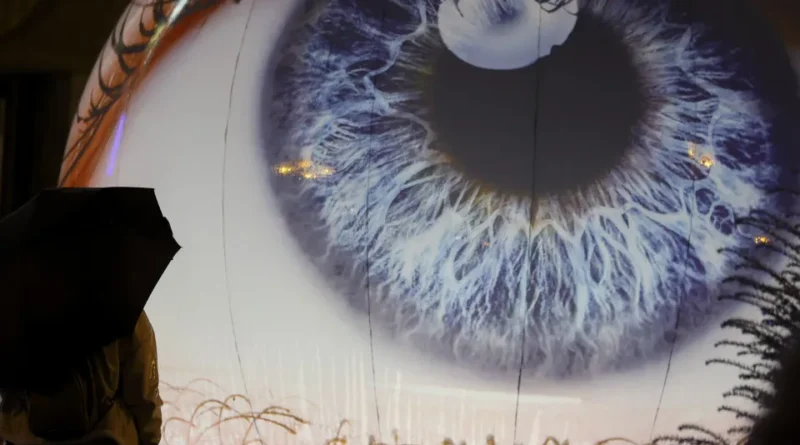🧠 Hong Kong Uses AI and Retinal Scans to Predict Alzheimer’s Risk
A breakthrough combining artificial intelligence and eye scans brings new hope for early Alzheimer’s detection.
In a groundbreaking move at the intersection of health and technology, researchers in Hong Kong are now using artificial intelligence (AI) to analyze retinal scans for early signs of Alzheimer’s disease. The non-invasive method offers a fast, affordable, and highly promising way to identify individuals at risk—years before symptoms begin to show.
👁️ The Eye: A Window to the Brain
The retina, located at the back of the eye, is part of the central nervous system and offers a unique glimpse into brain health. Scientists have long suspected that retinal changes could mirror changes in the brain, especially in neurodegenerative diseases such as Alzheimer’s.
Now, AI is turning this hypothesis into a powerful diagnostic tool.
🧬 How It Works
Using machine learning algorithms, the AI system analyzes high-resolution images of the retina to detect subtle changes in blood vessels, nerve fibers, and retinal thickness. These changes often correlate with early neurodegeneration.
The Hong Kong team trained their model on thousands of eye images, some from patients with diagnosed Alzheimer’s and others from healthy individuals. The AI can now predict the likelihood of developing Alzheimer’s with impressive accuracy, giving medical professionals a head start on prevention and treatment.
🚀 Speed, Affordability, and Scalability
One of the key advantages of this method is its non-invasiveness and speed. A simple eye scan, which takes less than five minutes, could soon become a routine screening tool, much like blood pressure checks.
The technology is also affordable and scalable, making it particularly valuable in under-resourced regions or aging populations where Alzheimer’s prevalence is growing.
🧪 Research and Validation
This innovation is part of an ongoing project led by Hong Kong Polytechnic University and local healthcare providers. The AI model continues to improve as more data is collected, and early trials have shown over 85% accuracy in identifying patients with high Alzheimer’s risk.
Researchers are now collaborating with global institutions to expand the dataset and ensure the model performs well across diverse populations.
🧠 Why Early Detection Matters
Alzheimer’s disease affects more than 55 million people worldwide, and this number is expected to double in the coming decades. The disease currently has no cure, but early detection can:
- Allow for lifestyle and medication changes that slow progression
- Enable family planning and caregiving preparation
- Help doctors track and manage symptoms more effectively
Until now, most diagnosis methods have relied on cognitive testing, brain imaging, or spinal taps, which are either expensive, time-consuming, or invasive.
AI-powered retinal scans change the game completely.
🌏 A Global Opportunity
Hong Kong’s pioneering approach has caught the attention of global health experts. If adopted worldwide, this technology could revolutionize the fight against Alzheimer’s—shifting the focus from treatment to early intervention and prevention.
Imagine a world where a quick visit to your optometrist could reveal vital information about your brain health. That’s no longer science fiction—it’s the future being built in Hong Kong today.
📉 The Future of Brain Health Screening
This innovation is just the beginning. Similar AI tools are being explored to detect Parkinson’s disease, multiple sclerosis, and even schizophrenia through retinal data.
As AI becomes more deeply embedded in healthcare, we can expect a wave of non-invasive, data-driven diagnostics that redefine how we detect and manage chronic illnesses.
🔍 Final Thoughts
Hong Kong’s use of AI to predict Alzheimer’s through retinal scans represents a major step forward in neuroscience and preventive medicine. It offers a glimpse into a future where early diagnosis is faster, easier, and more accessible to all.
With the global Alzheimer’s burden rising, breakthroughs like this may be our best hope to turn the tide—one eye scan at a time.
